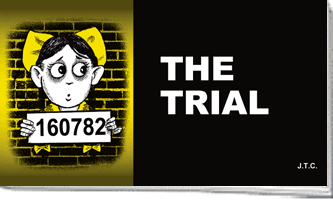New Law a Possible Threat to Soul Winning
- Issue Date: January/February 1999
Could the Bible be declared an instrument of persecution? Under a new bill just signed into law by President Clinton the following scenario seems to now be possible.
A missionary in a foreign country leads a young person to Christ and gives him a Bible. His parents are orthodox Jews. They complain to their government that the missionary is persecuting their family.
That government demands that the missionary's home government recall the missionary, arrest and try him for violation of this law which prohibits the exportation of "persecution facilitating products or services."
Sound far fetched? Possibly, but this new law, known as the Freedom From Religious Persecution Act provides for an Office of Religious Persecution Monitoring with a director appointed by the president. He is responsible to evaluate religious persecution world wide and designate countries or regions which carry out persecution. He is to draw up a list of "persecution facilitating products, goods, and services" which are used in "carrying out acts of religious persecution."
Granted, the law defines religious persecution primarily in terms of torture, murder or other violent acts. But it is based on a religious freedom definition which permits freedom of thought, conscience, worship, and even freedom to change one's religion. But it does not include freedom to "proselytize," — do soul winning or witnessing.
Under this definition, the young man in the example above would be free to change his religion, but the missionary could be charged for persecution because he "proselytized" the man. The missionary's activities could be construed as a "persecution facilitating service" and the product used, the Bible, as a "persecution facilitating product."
Is it not possible that this law lays the groundwork for banning all soul winning literature as persecution facilitating products and the sending of missionaries as a form of persecution facilitating services?
During the Gulf War, U.S. soldiers were restricted from bringing in gospel literature and even Bibles to Muslim Saudi Arabia where they were stationed.
If a Muslim country simply declares that Christian literature constitutes a threat to the religion of their people, then it could possibly be defined as a form of persecution and they could demand that U.S. citizens or organizations be prosecuted under section 7 of this Act.
Although the Act has been made law, your congressman or senator should be made aware of your concern. Bit by bit, our freedom to witness and distribute literature is being eroded. We must resist while we can.
- See more articles on related topics:
- Evangelism
- Other Subjects
- Religious Freedom
Other Articles from January/February 1999:
- Would You Consider Abortion in These Three Situations?
- Event Evangelism: Take the Gospel Where the Crowds Are
- As Israel and the PLO Negotiate, The Pope Makes His Bid for Jerusalem
- Try Answering These From Your NIV
- Sin is the Root of Poverty and Global Economic Turmoil
- Christian Web Sites Blocked as Offensive for Children
- Part II: Who Is the Whore of Rev. 17?
More on Other Subjects:
Products of Interest:

Trial, The
A young girl is sued because she witnessed to her young friend. A humorous story that drives home the vital Biblical truth that Jesus is the only way to heaven.-

Smokescreens
96 pages
Jack Chick shows that the ecumenical movement isn’t designed to bring all Christians into unity. That’s just a smokescreen, hiding the Vatican’s real intent, to stamp out religious freedom and rule the world. -

Last Call, The
64 pages
If you are serious about revival in your life, home, or church, this book is for you. -

Tract Assortment
Big sample pack with 130 titles of world-famous Chick tracts. Have the right tract for ANYONE! Great stories, simple Gospel.



